Microbiome research has grown substantially over the past decade in terms of the range of biomes sampled, identified taxa, and the volume of data derived from the samples. In particular, experimental approaches such as metagenomics, metabarcoding, metatranscriptomics, as well as other -omics are providing key information on the function, diversity and mechanistic drivers of microbial communities.
The ELIXIR Microbiome Community aims to promote standards around microbiome-derived sequence analysis and multi-omics integration, as well as understanding the gaps in training, methods and reference databases, and efficiently scale bioinformatics infrastructures and resources for microbiome research across all biomes.
Goals of the Community
Develop standards for FAIR microbiome analyses
- Data
- Establish a mapping between biome and checklists to develop controlled vocabularies and metadata quality checks
- Align metadata across databases
- Develop a training module dedicated to microbiome metadata
- Foster international collaborations between other resource providers and databases to ensure global harmonisation of e-infrastructures for microbiome research
- Tools
- Improve annotation via bio.tools and development of EDAM terms
- Leverage the CAMI initiative to facilitate benchmarking of tools and workflows
- Workflows
- Share ideas on the design and implementation of workflows for microbiome research, promoting the use of best practices
- Promote RO-Crate
- Federated computation
- Enable the execution of MGnify pipelines in Galaxy and/or other data management workflows, and submission of results to MGnify
- Establish routine mechanisms for federating microbiome analysis (e.g. RO-Crates, resources)
Build capacity in microbiome analyses
- Create a catalog of training resources for microbiome analyses
- Develop training resources to Increase awareness of microbiome tools, resources, and their applicability to different microbiomes
- Address knowledge gaps in generating and adopting workflows
- Deliver targeted training for different microbiome communities
- Build a community of trainers
Represent the Microbiome Community in its complexity
- Evaluate needs, key datasets, data analysis approaches, ‘omics data types, and biome-specific specialisation
- Identify key experts involved in viral, prokaryotic, and eukaryotic analysis
- Establish and share a strategic technical roadmap with the Communities and Platforms, highlighting key contacts
- Identify relevant funding calls, with the aid of building microbiome research informatics capacities and connecting to key experts in other ‘omics (e.g. metaproteomics)
- Develop crosstalk between distinct “biomes” area
- Develop a connection with the industry
- Represent the Microbiome Community at international conferences, promoting Community/ELIXIR outputs and solutions

Commissioned Services
The Marine Metagenomics Community has been involved in a number of short-term, technical projects called Commissioned Services. These have included:
Leadership

(ELIXIR Germany)

(EMBL-EBI)

(ELIXIR France)

(Senior Science Officer, ELIXIR Hub)
Find out more
- Contact microbiome-coleads [at] elixir-europe.org.
- Marine Metagenomics Portal
- Contact mmp [at] uit.no for any enquiries about the Marine Metagenomics Portal.
- Contact metagenomics-help [at] ebi.ac.uk for all enquiries about EBI metagenomics.
- Follow @EBImetagenomics to receive the latest news about updates to our services.
- EBI metagenomics tutorials and help pages
- Publications:
- White paper: Finn RD, Balech B, Burgin J et al. Establishing the ELIXIR Microbiome Community [version 1; peer review: 1 approve with reservations]. F1000 Research 2024, 13(ELIXIR): 50.
- (doi: https://doi.org/10.12688/f1000research.144515.1)
- Agafonov A, Mattila K, Tuan CD et al. META-pipe cloud setup and execution [version 1; referees: awaiting peer review]. F1000Research 2017, 6(ELIXIR):2060 (doi: 10.12688/f1000research.13204.1)
- Alexandre A, Mitchell AL, Boland M et al. A new genomic blueprint of the human gut microbiota. Nature 2019 (doi: https://doi.org/10.1038/s41586-019-0965-1)
- Mitchell AL, Scheremetjew M, Denise H et al. EBI Metagenomics in 2017: enriching the analysis of microbial communities, from sequence reads to assemblies. Nucleic Acids Res. 2018; 46: D726-D735 (doi: 10.1093/nar/gkx967).
- Klemetsen T, Raknes IA, Fu J et al. The MAR databases: development and implementation of databases specific for marine metagenomics. Nucleic Acids Res. 2018; 46: D692-D699 (doi: 10.1093/nar/gkx1036).
- Santamaria M, Fosso B, Licciulli F, Balech B, Larini I, Grillo G, De Caro G, Liuni S, Pesole G. ITSoneDB: a comprehensive collection of eukaryotic ribosomal RNA Internal Transcribed Spacer 1 (ITS1) sequences. Nucleic Acids Res. 2018; 46: D127–D132 (doi: 10.1093/nar/gkx855)
- Robertsen EM, Denise H, Mitchell A et al. ELIXIR pilot action: Marine metagenomics – towards a domain specific set of sustainable services [version 1; referees: 1 approved, 2 approved with reservations]. F1000Research 2017, 6(ELIXIR):70 (doi: 10.12688/f1000research.10443.1)
- Slides about the Marine Metagenomics Use Case - from the ELIXIR All Hands Meeting, March 2017.

